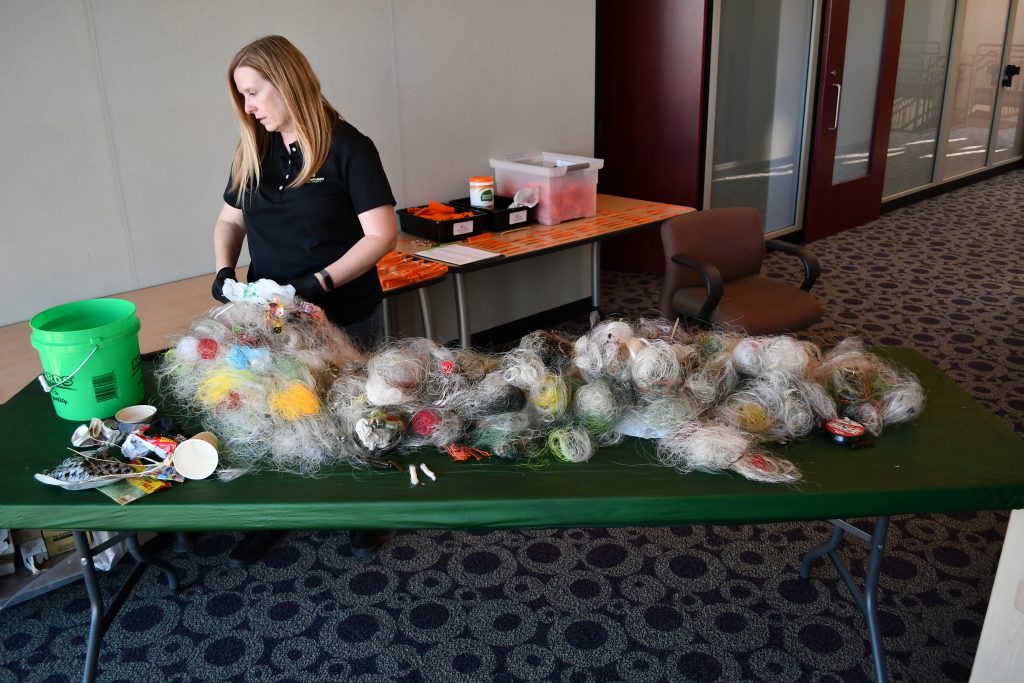Hold That Fishing Line! Don’t Toss It

Jen Guest recently picked through a tangled mass of fishing line stretched out before her on a table searching for items that didn’t belong.
She carefully removed hooks, fishing lures, broken bobbers, litter, leaves and twigs from the pile of monofilament so it could be sent off for recycling.
The fishing line was collected in 2022 from around 25 monofilament recycling tubes installed at Forest Preserve fishing locations. The tubes are part of a monofilament recycling program that is designed to get anglers to recycle fishing line rather than leave it in the water, along the shoreline or hanging from trees where it can harm and kill wildlife.
“We encourage people to recycle their fishing line,” said Guest, the Forest Preserve District of Will County’s recreation coordinator. “If they get a snag or get their line cut, instead of leaving it out where animals can get entangled in it, we want them to put the line in the recycling containers.”
Fishing line segments carelessly left behind or tossed away can result in devastating effects on wildlife by ensnaring their feet, wings, necks or bodies and causing injuries or death when they struggle to be free. The Forest Preserve has documented many cases where animals were injured or killed by fishing line.
Throughout the year, volunteers empty the monofilament containers monthly and turn the collected line in to the closest Forest Preserve visitor centers. In mid-March, Guest collected all the bags from 2022 and sorted through the mass of line, weeding out items that can’t be recycled, so it could be shipped to the Iowa-based Berkley Conservation Institute.
“They’re going to melt it down into pellets and they will recycle the pellets into something new,” she explained. “The fishing line gets a second life. And by recycling it and keeping it out of our waterways and trees, it helps protect our animals.”
Berkley makes tackle boxes, fishing line spools, fish habitats and toys out of the pellets. The institute has recycled more than 9 million miles of fishing line since 1990.
The Forest Preserve’s monofilament recycling program began several years ago, and new tubes have been added each year. Many of the tubes were made by Eagle Scouts.
Guest encourages all anglers to cut discarded fishing line into small segments of 6 to 12 inches and dispose of them in monofilament recycling containers or covered trash containers to protect wildlife. Monofilament cannot be recycled through curbside recycling.
For more information on the Forest Preserve District of Will County, visit ReconnectWithNature.org.